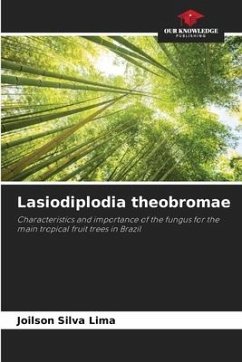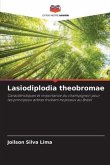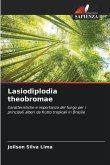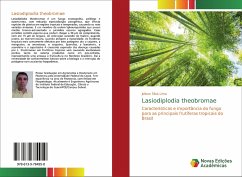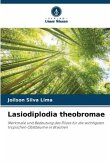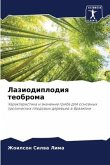Lasiodiplodia theobromae is a cosmopolitan, polyphagous and opportunistic fungus with little pathogenic specialisation that infects plant species in tropical and temperate regions, causing the most varied symptoms. It is a member of the order Sphaeropsidales with greyish-white mycelium and aggregated dark pycnidia. These pycnidia contain spores that can reach 30 mim in length, up to 15 mim wide, and vary in colour from hyaline when young to dark brown when mature. The tropical fruit trees most commonly affected by this pathogen are cashew, mango, anonaceae, coconut, Spondias, banana, aceroleira and sapodilla. The growing expansion of diseases caused by L. theobromae in tropical fruit trees has caused invaluable losses, both in the production system and in post-harvest, representing a threat to fruit growing in the Brazilian Northeast. Hence the need for basic knowledge about the biology and interaction of the pathogen with host plants.
